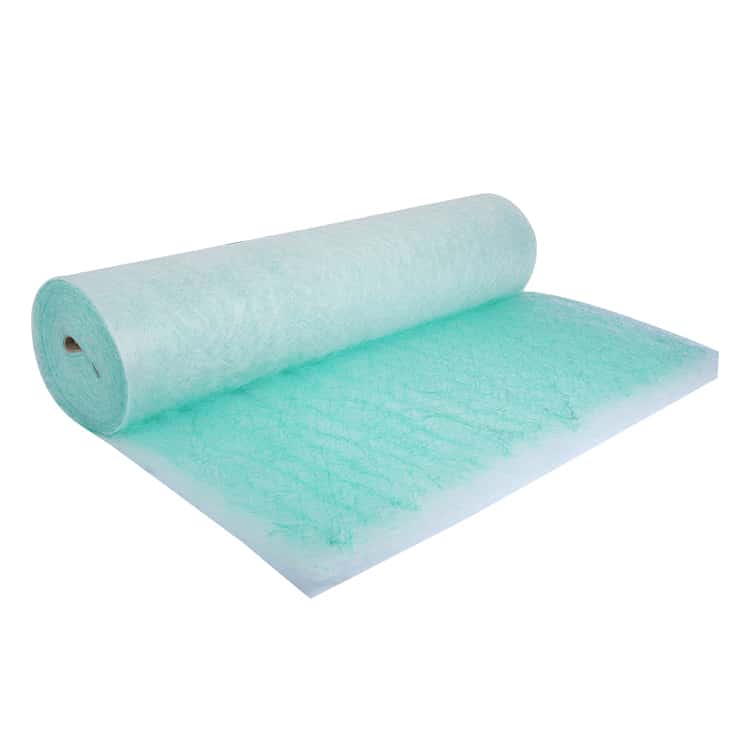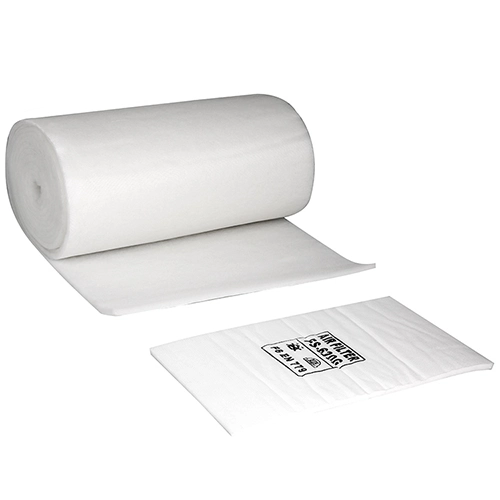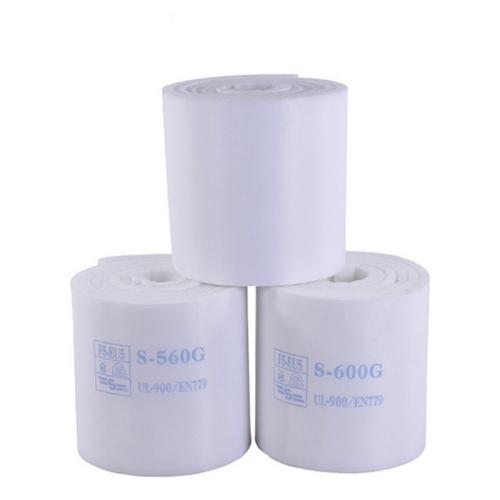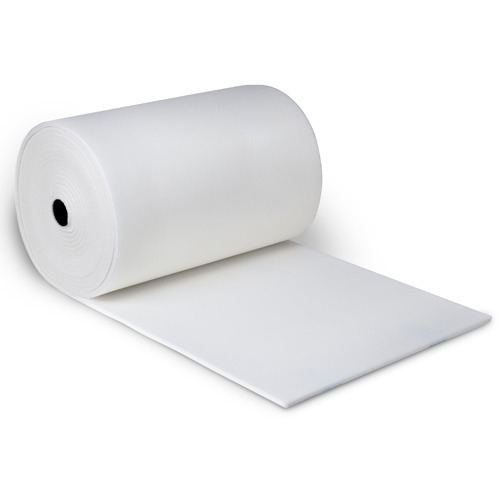Paint Booth Q&A: How often should spray booth filters be changed?
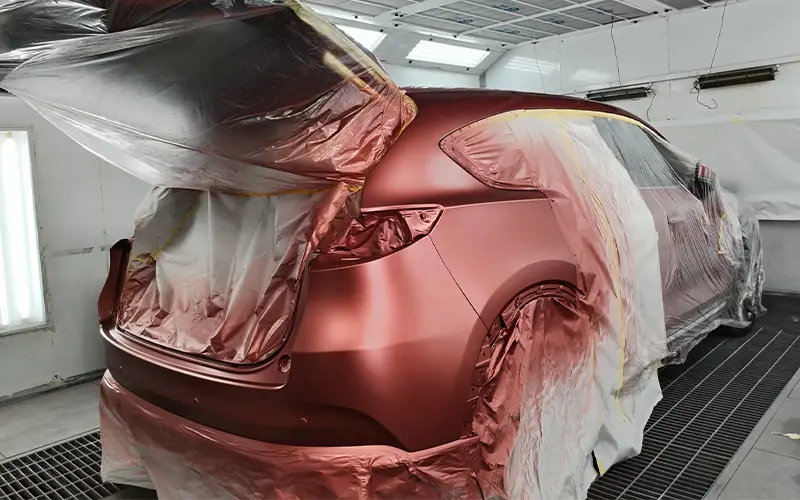 Photo by: Hong Y auto paint
Photo by: Hong Y auto paint
In the world of painting and finishing, paint booth filters play a crucial role in achieving high-quality surface results. They are the unsung heroes, ensuring that the air inside your booth is clean and free from contaminants that can mar your paint job.
Filter maintenance is more than just a routine task. It’s a critical component of ensuring both the quality of your finished products and the longevity of your spray booth equipment.
Neglecting filter changes can lead to issues like overspray contamination, reduced airflow, and even costly repairs.
Signs It’s Time to Change Paint Booth Filters
A. Decreased Airflow and Performance
One of the most noticeable signs that it’s time for a filter change is a decrease in airflow and overall booth performance.
1) Slower Extraction:
If you notice that the exhaust system is not pulling air and overspray as efficiently as it used to, this is a clear signal of reduced airflow. Paint fumes may linger in the booth longer.
2) Weaker Exhaust:
The velocity of air leaving the booth may decrease, leading to less effective overspray removal.
3) Inadequate Ventilation:
Inadequate ventilation can result in a stuffy or uncomfortable working environment inside the booth. If you or your workers experience discomfort due to poor airflow, it’s time to check the filters.
B. Visible Accumulation of Overspray
Filters are designed to capture overspray, and you’ll see visible accumulations as they fill up.
1) Visible Paint Buildup:
The most obvious sign is when you can see a noticeable coating of paint on the surface of your filters. This buildup can range from a thin layer to a thick, cake-like consistency, depending on the filter’s age and the volume of painting you’ve been doing.
2) Changes in Color:
Filters are often white or light in color. As overspray accumulates, you’ll observe a shift in color as they take on the hue of the paint being used. For instance, if you’re spraying red paint, the filters may start to turn pink or reddish.
3) Uneven Coating:
Filters don’t always accumulate overspray evenly. You might notice certain areas of the filter becoming denser with paint than others. This unevenness can be an indicator that your filters are reaching their capacity.
C. Quality Issues in Painted Surfaces
If you’re experiencing quality problems in your paint jobs, it might be due to clogged filters. We’ll explore how filter conditions can impact your finished products.
D. Manufacturer’s Recommendations
Filter manufacturers often provide guidelines on when to replace their products. We’ll explain why it’s essential to follow these recommendations.
Factors Affecting Paint Booth Filter Lifespan
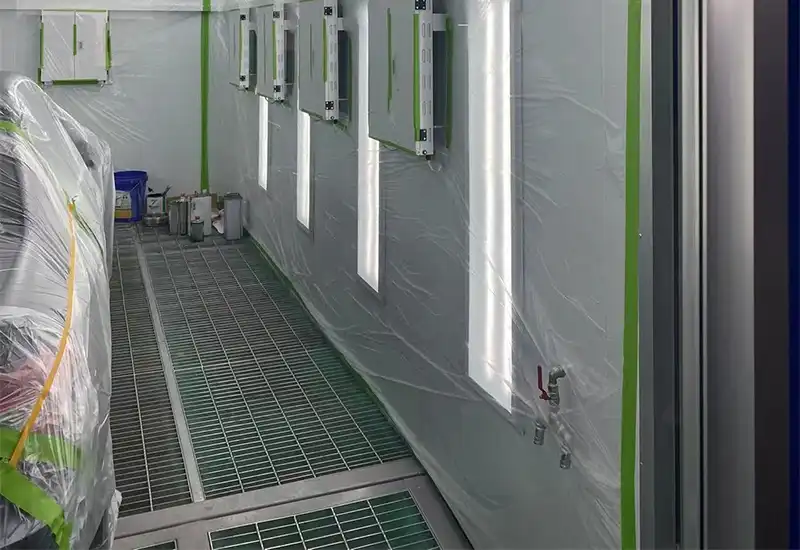 Photo by: Dennis Wu Spray Booth
Photo by: Dennis Wu Spray Booth
Some say that you will need to change filters every 6 months, however, the truth is that there is no fixed time frame for filter changeover, since the situation is completely different for each paint booth.
A.Volume and Type of Painting Projects
The frequency of filter changes can vary significantly depending on whether you’re running a high-volume industrial operation or a smaller-scale workshop.
In large-scale industrial settings where painting is a continuous process, filters need more frequent replacement. The sheer volume of work means that overspray accumulates rapidly, quickly reaching the filter’s saturation point. This might entail changing filters weekly or even daily.
On the other hand, smaller workshops with sporadic painting projects generate less overspray. Filters here can last significantly longer, and replacement may only be required monthly or every few months.
B. Environmental Conditions in the Booth
Environmental factors like humidity, temperature, and the presence of contaminants in your work area can impact how quickly filters become saturated.
C. Types of Coatings Used
The type of paint or coating you’re using can also affect filter life. Some coatings produce more overspray than others, leading to quicker filter saturation.
D. Booth Maintenance Practices
The way you maintain your booth, including regular cleaning and system inspections, plays a significant role in filter longevity.
Best Practises For Extending Filter Service Life
Extending the service life of your paint booth filters is not only cost-effective but also crucial for maintaining the quality and efficiency of your painting operations.
Here are some tips on how to make your paint booth filters last longer:
Regular Filter Inspection:
Conduct routine visual inspections of your filters. Look for signs of oversaturation, clogs, or damage. Early detection allows you to address issues before they become severe.
Correct Filter Selection:
Choose filters that are specifically designed for your paint booth and the type of coatings you use. Using the right filters can optimize performance and longevity. Connect with our experts to find out the best filters for your paint booth.
Pre-Filtration:
Consider using pre-filters or intake filters. These can capture larger particles and extend the life of your primary or next-stage filters by reducing their exposure to overspray.
Filter Arrangement:
Ensure proper filter arrangement and placement in your paint booth. Filters should fit securely and be correctly aligned to prevent bypass of unfiltered air.
Filter Maintenance Schedule:
Develop a maintenance schedule that includes regular filter replacement. The frequency will depend on factors like booth usage and the type of coatings you apply.
Monitor Paint Booth Airflow:
Monitor the airflow in your booth to ensure it remains within the recommended range. Excessive airflow can lead to premature filter clogging, while low airflow can reduce filter efficiency.
Conclusion
The frequency of changing spray booth filters is a critical aspect of maintaining a high-performing and efficient painting operation. By regularly monitoring and assessing your filters, you can ensure that they are replaced at the right time.
Whether you’re running a small workshop or a large-scale industrial facility, paint booth air quality contributes significantly to the paint job quality. Using quality air filters is one of the most important factors that maintain good air filtration and lower cost.
Check out CleanLink’s air filters and get custom filter media for your special needs.
